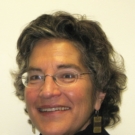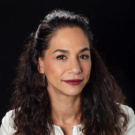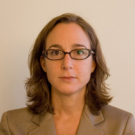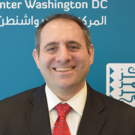Speakers

Michael N. Barnett
Professor of International Affairs and Political Science, Elliot School of International Affairs, George Washington University

Phyllis Bennis
Director, the New Internationalism Project, Institute for Policy Studies

Noura Erakat
Associate Professor of Africana Studies and the Program of Criminal Justice, Rutgers University

Maria LaHood
Deputy Legal Director, Center for Constitutional Rights

Raz Segal
Associate Professor of Holocaust and Genocide Studies and Endowed Professor in the Study of Modern Genocide, Stockton University
Moderator
About the Webinar
Allegations of genocide by Israel against the Palestinian people in Gaza took a significant legal step forward when South Africa, a party to the Genocide Convention, recently announced legal action against Israel at the International Court of Justice. This panel will discuss the legal and political issues surrounding the crime of genocide and Israel’s war on Gaza, and shed light on legal definitions and avenues for accountability, as well as the political prospects and ramifications of failing to act within the genocide framework.
Event Summary
Michael Barnett discussed the history of Israeli politicians’ preparation for genocidal acts against Palestinians, and the United Nations’ established warning indicators, predictors, and preconditions for committing genocide. Barnett said that Hamas’s October 7 attack on Israel was a trigger for committing such genocide, although he still does not believe that there is enough evidence to justify the claim that Israel has actually committed it.
Noura Erakat contradicted Barnett’s contention that there isn’t enough evidence yet and said that what South Africa at this time is only asking for is an emergency injunction to force Israel to stop its operations. Erakat also discussed how Israel has always sought to find exceptions for its behavior and policies. She likened what is happening today in Gaza to what happened during the 1948 Nakba and the dispossession of the Palestinians.
Raz Segal went into the history of establishing the genocide convention, considering it a product of the western, colonial-settler discourse. He said that the holocaust was an exceptional case and it should be considered as the only example of genocide. By extension, he said, Israel cannot use the exceptional holocaust to behave as an exception and assume that it is immune to the laws and imperatives of international law, concluding that Israel is committing genocide in Gaza.
Maria LaHood talked about cases her Center for Constitutional Rights is arguing in court on behalf of Palestinian clients suing the US government for aiding and abetting Israeli genocide. She discussed the conditions of children and others under attack now in Gaza. LaHood reported that 335,000 children in Gaza are now severely suffering from malnutrition and expecting to live with serious health problems in the future.
Phyllis Bennis discussed the South African case at The Hague and how many in the Global South have joined it in an attempt to use the institutions created by the West to enforce international law. She said that this case, taking Israel to court for genocide, is similar to that of accusing Israel of being an apartheid state over the last two decades. Bennis said that South Africa feels that it has the responsibility as a representative of the Global South to bring this case to the ICJ.
Featured image credit: Shuttestock/Anas Mohammad

